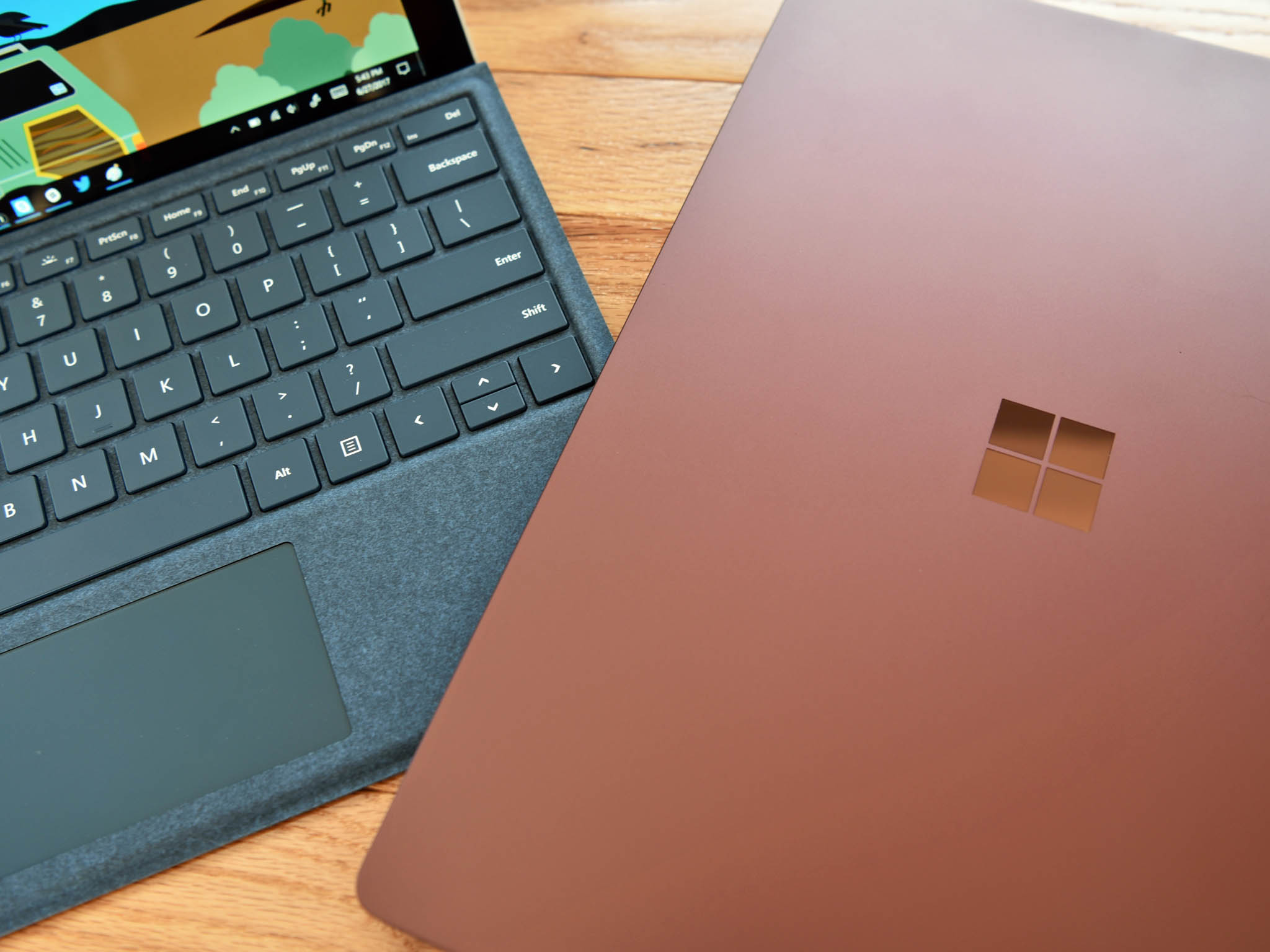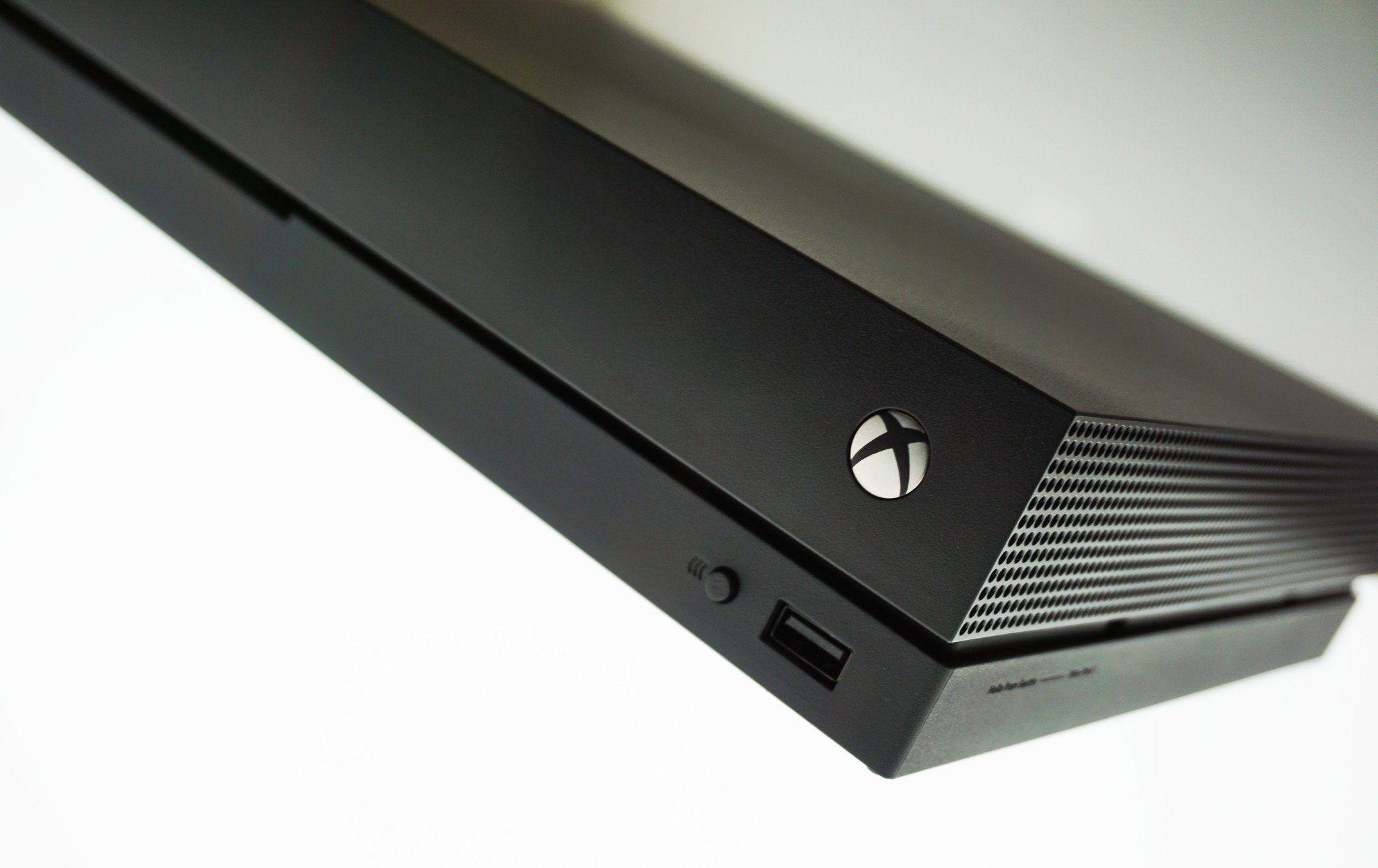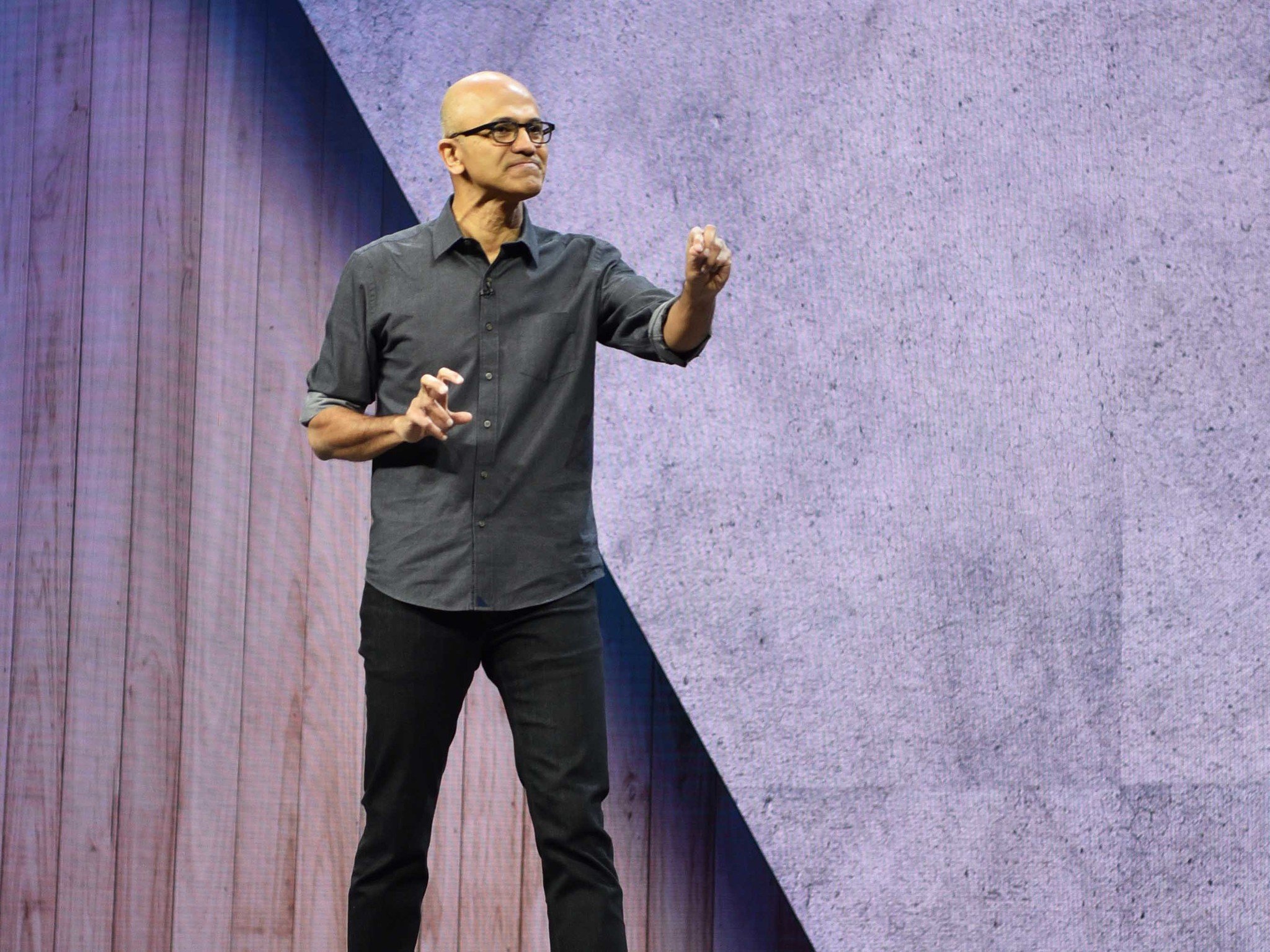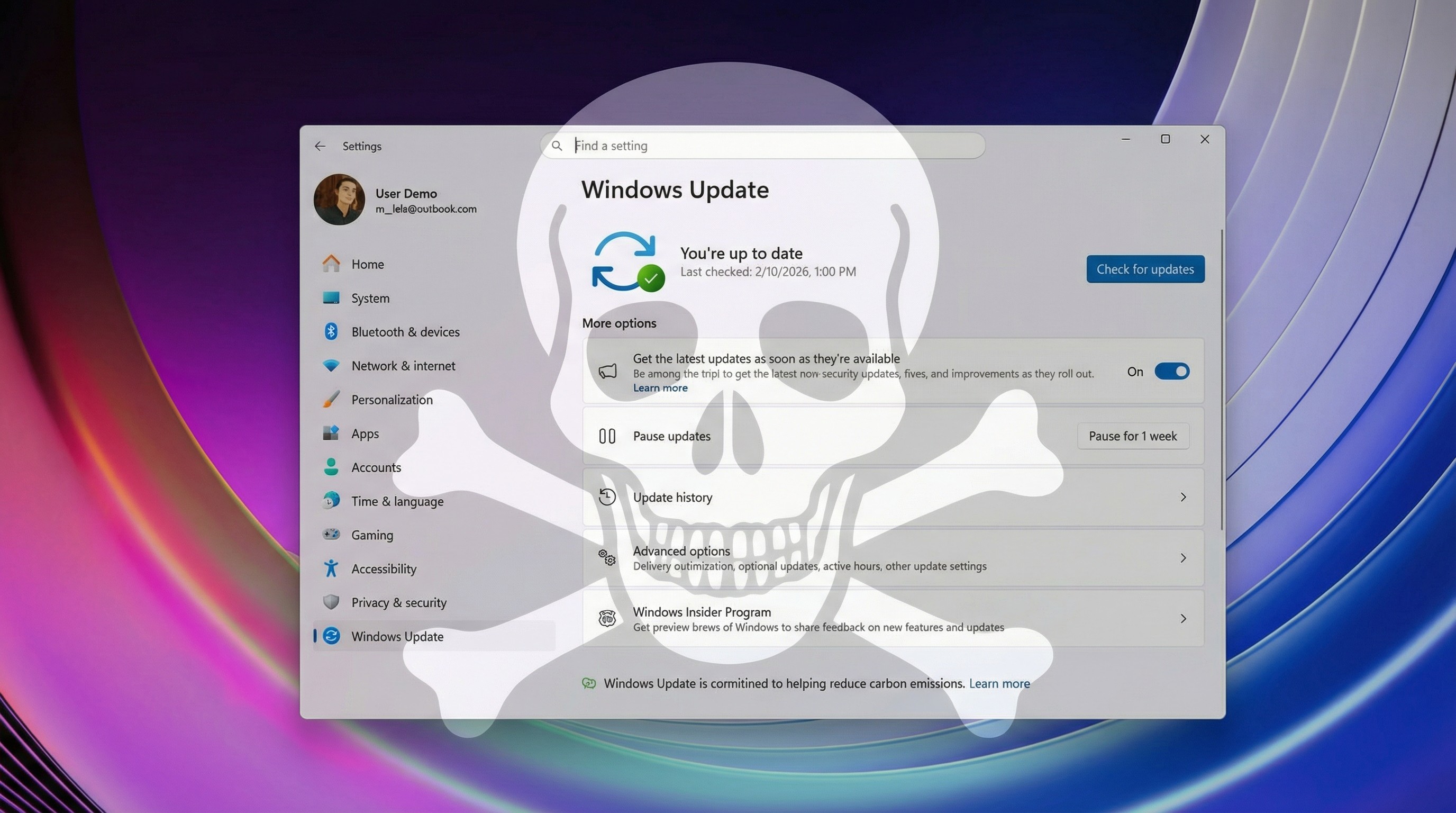Is Microsoft close to quitting Surface hardware? Hardly.
A recent news story citing competing PC manufacturers claims that Microsoft will soon dump its Surface brand. Microsoft CEO Satya Nadella says otherwise.

All the latest news, reviews, and guides for Windows and Xbox diehards.
You are now subscribed
Your newsletter sign-up was successful
Recently, the news site The Register ran a damning and bold headline that read "2019: The year that Microsoft quits Surface hardware". While the headline may seem hyperbolic, the article goes on to quote Canalys CEO Steve Brazier and Gianfranco Lanci, corporate president and chief operating officer at Lenovo to back the claim.
With the announcement that Microsoft's streaming Groove Music service was going away and what appears like a shift away from the consumer brand by Microsoft, the idea seems plausible. However, there are reasons to doubt its validity too.
What was said
The Register quotes Brazier in saying:
The Surface performance is choppy; there are good quarters and bad quarters, overall they are not making money. It doesn't make sense for them to be in this business.When the capital expenditure challenge that Satya Nadella has taken Microsoft down becomes visible to Wall Street, everyone will ask him 'Why have you gone to a low margin business?
Later, citing continuing needs to cut costs Brazier says that Surface will be the first target.
Lanci also agrees, noting he thinks Microsoft will drop Surface by 2019 (hence the headline) or maybe even earlier. His reasoning:
Microsoft is making a lot of money on cloud, making a lot of money on Windows and Office, but losing a lot of money on devices.And frankly speaking, it is difficult to see why they should keep losing money. For them it is a very difficult exercise to run hardware products business, they need to be careful about every single detail as the margin on this is so thin.
Even Dell chief commercial officer Marius Haas jumped in remarking that Microsoft will likely "slow it down a bit."
None of this even extraordinary.
All the latest news, reviews, and guides for Windows and Xbox diehards.
Going back to 2014, when Nadella was ascending to CEO status, there was a big internal push by so-called activist shareholders to get Microsoft out of the consumer market. Many of Microsoft's investors wanted them to drop Bing, Xbox, and yes, Surface. The pressure is real.

Ever since Surface was announced in 2012 rival PC companies have doubted its success, or downplayed its significance (while at the same, riding the wave of creativity and renewed PC passion with their own products).
Why those remarks may not matter
Indeed, there should be some caution when reading those quotes. Lenovo and Dell have a vested interest in softening Microsoft's Surface impact on the PC business. They and others all make Surface clones with their improvements. The thought that these same companies want Microsoft to back out now is biased as they all have a vested interest were it to happen.
There is some hubris here, too, I think as these companies do not appreciate Microsoft outshining them or do not believe that they are, just as the CEO of Palm once dismissed the prospect of Apple making a smartphone.
Creating fear, uncertainty, and doubt is a crucial disinformation strategy, and these are not impartial players.
Second, it should be evident that none of these executives, despite their business titles are operating with any insider knowledge of Microsoft's Surface plans. From personal interaction with many of these same companies, I can tell you they had no idea about the Surface Laptop before it was announced and were caught off-guard. If anything, you dear reader are more informed about Microsoft's upcoming Surface plans through reading this site than most PC OEM CEOs.
Microsoft's Surface plans are well-kept secrets, and the company does not share its hardware plans with its partners. Not only would that be ill-advised, but it could also be illegal as a form of collusion.

But putting conjecture aside, all we must do is look back a week ago at what Satya Nadella told Bloomberg during an in-depth interview. Nadella specifically noted that Microsoft must continue to make its own hardware. From the article:
It's Alan Kay who said 'if you're serious about your software, you make your own hardware.' I think there's some truth to it.
Being more specific, Nadella notes that to create new device categories with new software experiences they need to do that themselves. Examples like Surface Studio, HoloLens, the original Surface, and Surface Book come to mind.
Nadella also believes in the company making its own hardware because of lessons learned in the past. Nadella rightly criticizes former Microsoft CEO Steve Ballmer and co-founder Bill Gates and the earlier attempt at Windows tablets (pre-Surface) where the company merely made the software. Instead, they left the hardware to Microsoft's partners, and they blew it. In comes Apple with the iPad and the rest, as they say, is history. (The same criticism could be applied to Microsoft Windows Phone too, where a "hero" device from the company early on may have led to a different outcome).
These remarks are relevant because they are not just push back against the idea of them dropping Surface, but a precise and strategic rationale for why they must continue to make their own hardware.
Lastly, we should observe that Surface Laptop doesn't even create a new device category. If Nadella and the Microsoft board were so down on Surface as a brand canceling Surface Laptop before its release would seem to be a given if any of this were true. Surface Laptop was a device they could have nixed, and not much would have changed. A Surface Book "2" and an ARM-based Surface device, not to mention the rumored "Andromeda" hardware for mobile, are all on expected to be released by Microsoft in the coming year.
Perception is the real problem
The elephant in the room, of course, is that Microsoft – through Satya Nadella – is more interested in cloud and enterprise than the consumer market. Many people have yearned for – or been critical – of Microsoft "becoming the next IBM."
While I do think Microsoft is pulling back in some areas for consumers, e.g., fitness wearables, phone, streaming music, etc. the company is also taking more significant risks elsewhere — like Windows Mixed Reality. Getting Microsoft software and services onto all devices, regardless of the OS, is critical (see Microsoft Edge on iPhone and Android).

The thought that Microsoft is getting ready to pull the plug on Surface seems way off the mark to me. During our tour of the Surface facilities on the Redmond campus, the amount of money and infrastructure the company is building for its hardware development is unprecedented. Microsoft reorganized its internal leadership structure to reflect this continued push towards software that drives hardware and vice versa.
During my tour, Surface head Panos Panay effused about how with the new Surface Pro the hardware team was able to work more closely than ever with the Windows group because of those purposeful changes.
Nonetheless, the more significant issue here – as elsewhere – is perception. The idea that Microsoft could – or would – cancel Surface is not met with immediate rebuke from analysts, but instead, plausibility is the real problem.
Microsoft's tumultuous last few years with realignment, layoffs, and significant shifts in strategy create a level of expectation where anything can happen at any time. That may not come off as forged destiny, but instead, chaos and that's the worrying part.

Daniel Rubino is the Editor-in-Chief of Windows Central. He is also the head reviewer, podcast co-host, and lead analyst. He has been covering Microsoft since 2007, when this site was called WMExperts (and later Windows Phone Central). His interests include Windows, laptops, next-gen computing, and wearable tech. He has reviewed laptops for over 10 years and is particularly fond of Qualcomm processors, new form factors, and thin-and-light PCs. Before all this tech stuff, he worked on a Ph.D. in linguistics studying brain and syntax, performed polysomnographs in NYC, and was a motion-picture operator for 17 years.
